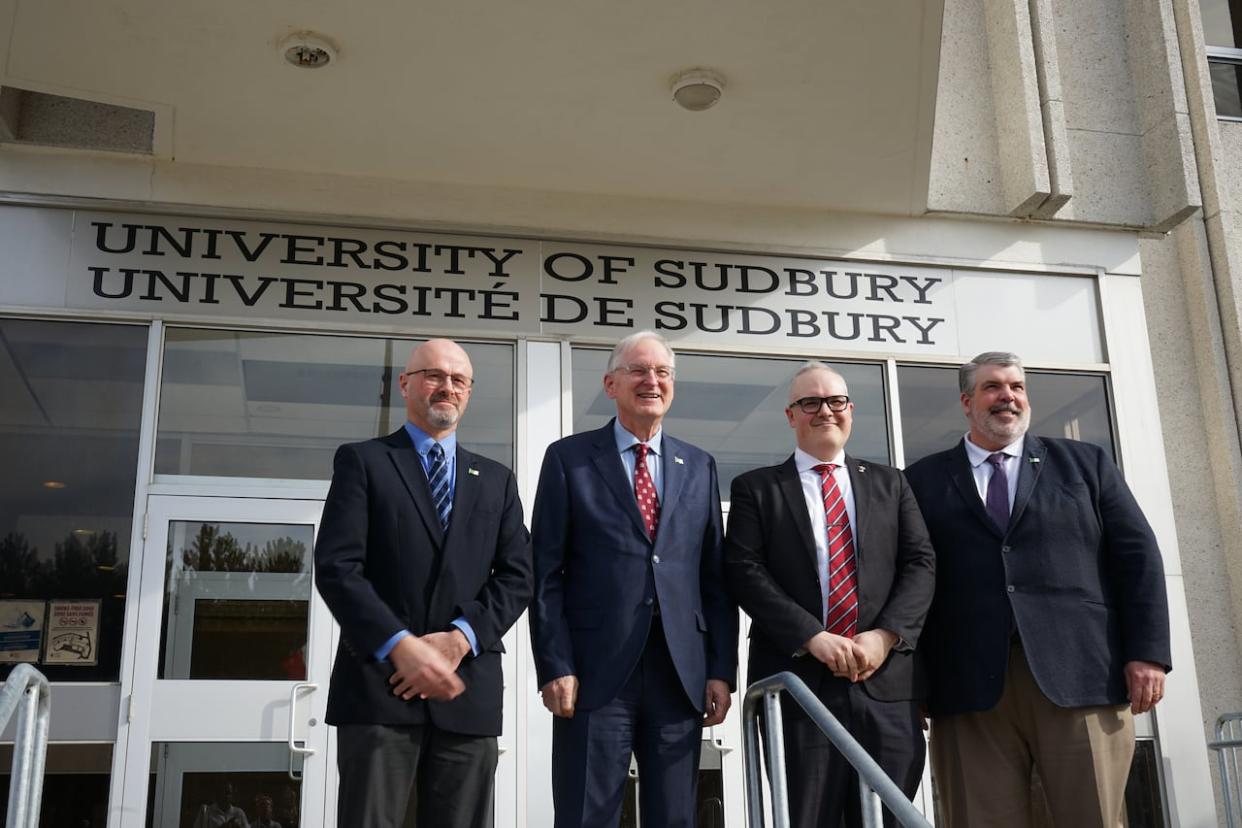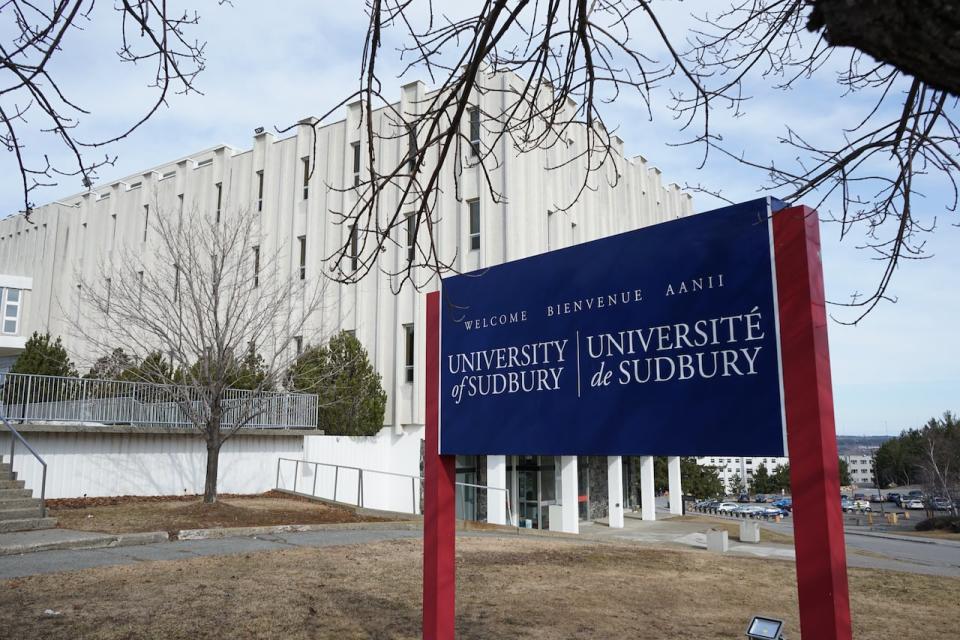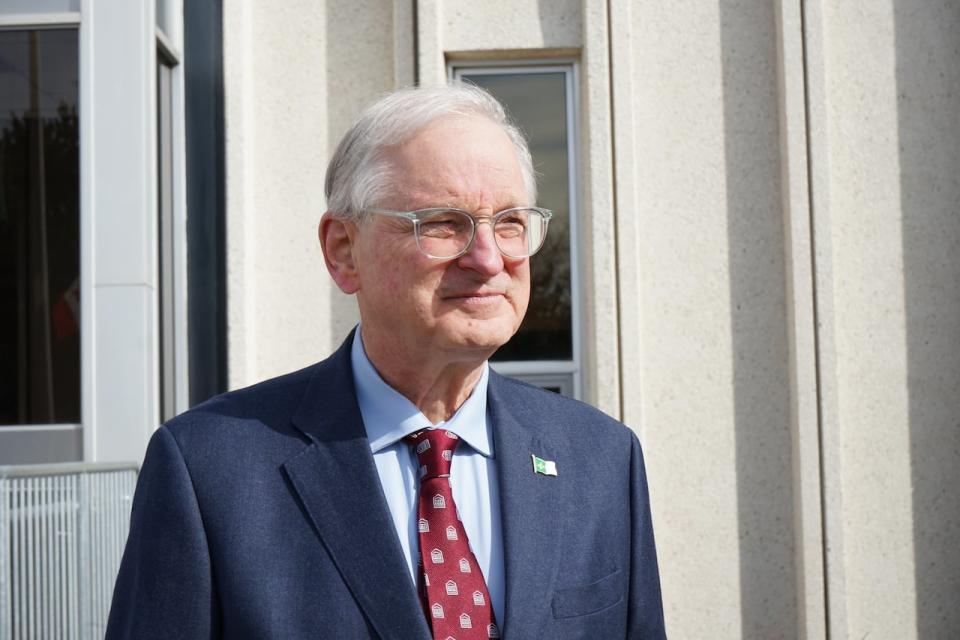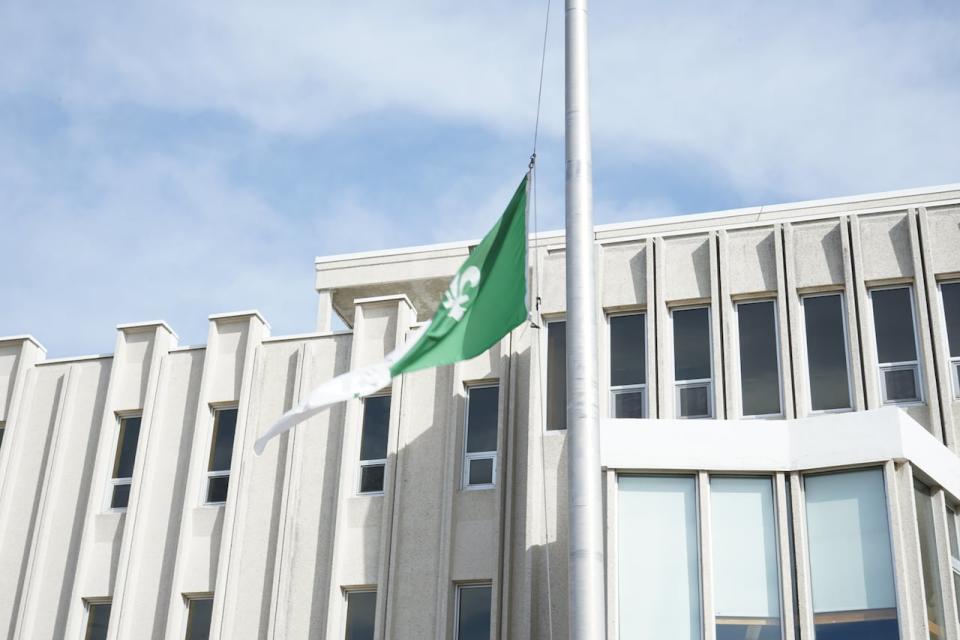University of Sudbury announces a partnership with University of Ottawa

The University of Sudbury has entered into an agreement with the University of Ottawa to offer programs in northern Ontario.
The institution is located right next door to Laurentian University, which severed ties with its affiliated universities during the insolvency process.
Since then, the path forward has remained unclear for the University of Sudbury, especially when the province quietly announced it would not fund a standalone French university in northern Ontario in June 2023.
"It's fantastic news," said Serge Miville, president of the University of Sudbury. "The partnership with the University of Ottawa will ensure we'll be able to give programming that's not currently available to students in French in September 2025."
The plan is to issue diplomas from both establishments.
Miville says he's open to discussing partnerships with other institutions as well, including Laurentian University.

The University of Sudbury has not offered French-language courses since Laurentian severed its ties with it three years ago. (Aya Dufour/CBC)
"We're not seeking to compete with other institutions in the region," he said. "We should be working towards a partnership with Laurentian and I think we should talk about recognizing credits between both establishments."
It is unclear what programs will be offered at the University of Sudbury in 2025, but Miville says they will be labour-market oriented and they will lead towards a Bachelor of Arts.
It's an academic agreement, not a financial one
Jacques Frémont, president and vice-chancellor of the University of Ottawa, says partnering with a northern institution is part of the University's mandate.
"We're a part of the Franco-Ontarian community. It's important for us to say that we're present," he said.
He adds the agreement does not come with a financial commitment.
"There are no costs yet for the University of Ottawa. This has to be a win, win proposal," said Frémont. "We will expand our presence. There will be some joint programs, but we're not there to lose money."
Now that the agreement is in place, both institutions will plan on how to make funding requests with the province.

Jacques Frémont, president and vice chancellor of the University of Ottawa, came to Sudbury to announce the agreement between the two institutions. (Aya Dufour/CBC)
Miville believes the partnership with the University of Ottawa strengthens the pitch for a standalone French university in the North, as it optimizes administrative resources.
The Ministry of Universities and Colleges has not yet responded to CBC's request for comment, but one official did attend the announcement on Thursday.
"The Assistant Deputy Minister for Francophone Affairs was present, so I think it sends a clear signal that there's some interest from Ontario for this type of initiative," said Frémont.
Some in the French community feel uneasy
Some francophone groups are cheering on the agreement, saying it establishes a clear path forward for the University of Sudbury.
"We are happy to learn that through this agreement the University of Sudbury will be able to offer programs and courses in French in northern Ontario, meeting a critical need," wrote the Franco-Ontarian student coalition in a press release.
"However, we feel the agreement leaves key concerns unaddressed, especially as it relates to the University of Ottawa's power over the University of Sudbury."

The Franco-Ontarian flag was first raised at the University of Sudbury in 1975. (Aya Dufour/CBC)
The coalition worries that an agreement like this one could leave the French university project in a vulnerable position if the University of Ottawa were to make cuts to its programming.
"We want mechanisms to prevent a situation like the one University of Sudbury found itself in when Laurentian severed its ties with it," said the press release.
University of Ottawa is experiencing financial pressures
Geneviève Tellier, a politics professor at the University of Ottawa, also has concerns about the agreement.
"We're told next week there will be a town hall to address the financial issues [at the University of Ottawa]. Is an institution with financial troubles a good partner for the University of Sudbury?" she asked.
She adds that it would not make sense to cut programs at the University of Ottawa, only to open new ones at the University of Sudbury.
When asked about the University of Ottawa's financial position, Frémont stressed that all post secondary institutions in Ontario are struggling at the moment, but said French programming is not going to suffer disproportionately if cuts need to be made in the future.
"As long as I am president at the university, it is not going to happen. Our Francophone mission is extremely important for us, but also for Ontario as a whole," he said.
As for Tellier, she's not convinced the agreement gives the University of Sudbury a better shot at provincial funding.
"If I was the Minister, I would say 'problem solved' and move on to another file," she said. "It will be more difficult to make an argument that they still need funding."
She also wonders why the University of Sudbury did not seek a partnership with French institutions, as opposed to a bilingual one.
"Why did we not see a partnership with the Université de l'Ontario français or the Université de Hearst?" she asked.
"It's easier to share resources if they are in the same language. It would have been the logical avenue I think."

